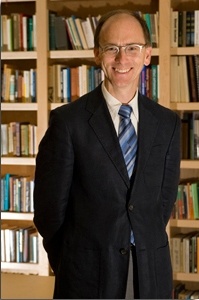
Downing Thomas, guest opinion, Press Citizen
Globalization is the movement of people, ideas, goods, services and diseases across borders, and it also refers to the increasing rapidity and intensity with which this movement occurs. Internationalization is higher education’s engagement with these processes.
As we know, globalization can positively impact people, communities and markets. Consider how cross-cultural understanding can improve the lives and livelihoods of individuals around the world. Iowa’s nine sister states and the organization that binds them here in our state (iowasisterstates.org), just to take one example, helps facilitate the agricultural, business, educational and other exchanges between Iowans and the citizens of our sister states around the globe.
The relationships built through these connections have clear benefits on both sides. As we also know, there are big downsides to globalization. With increasingly dense passenger air routes, a new disease can emerge and spread globally with incredible rapidity, and without warning. Tectonic financial swings can have similarly momentous effects. One thing is certain: globalization is not going away.
Higher education is an indispensable element in our productive economy, and demand for it worldwide is increasing as a result. The internationalization of higher education allows us to engage in globalization, to understand the forces at work behind it, ultimately to provide solutions to the problems it creates and ways to tap its opportunities. Internationalization provides students with the ability to cross borders confidently and to work with people from diverse backgrounds. It allows us to make unforeseen connections between the local and the global for mutual benefit. At a time when the political winds are shifting dramatically and in unpredictable ways (and when is there a time when that is not the case?), it is now more important than ever to equip our students with the ability to be successful in a global environment.
How can Iowa, and how can the U.S., develop, attract, and retain talent in this environment? How can we ensure that the University of Iowa continues and enhances its position as a major player in the global system of higher education that is part and parcel of talent development? At the University of Iowa, we are in the process of recommitting to internationalization by articulating a vision and goals that are tied to the core missions of the institution.
On Wednesday, from 4:30-5:30 p.m. in the Old Capitol Senate Chamber, Ellen Hazelkorn, policy adviser for the Irish Higher Education Authority, will address various facets of this landscape in her keynote presentation, focused on “Internationalization and the Geopolitics of Higher Education.” She will look at the forces at work in globalization, the trends we can discern, and the ways in which higher education can be framed in this environment in terms of its quality, the value and relevance it has — and the increasing pressures for resources in the higher education landscape.
The following evening, Thursday, from 7:30-9 p.m. at the Voxman Music Building, Joan Kjaer will host Hazelkorn together with Barbara McFadden Allen, the executive director of the Big Ten Academic Alliance, for a WorldCanvass program, “Higher Education in the Age of Internationalization," featuring the 2016 International Impact Award Winner Howard Kerr. Kerr knows something of the effects of globalization from his career-long service as a U.S. Naval Officer and adviser to Vice President Spiro Agnew and to President Gerald Ford, and we are delighted to be able to recognize Kerr for his achievements. The WorldCanvass program will be preceded by a catered reception from 6:30-7:30 p.m.
We hope you will join us for these important discussions.
Downing Thomas is associate provost and dean of University of Iowa International Programs.